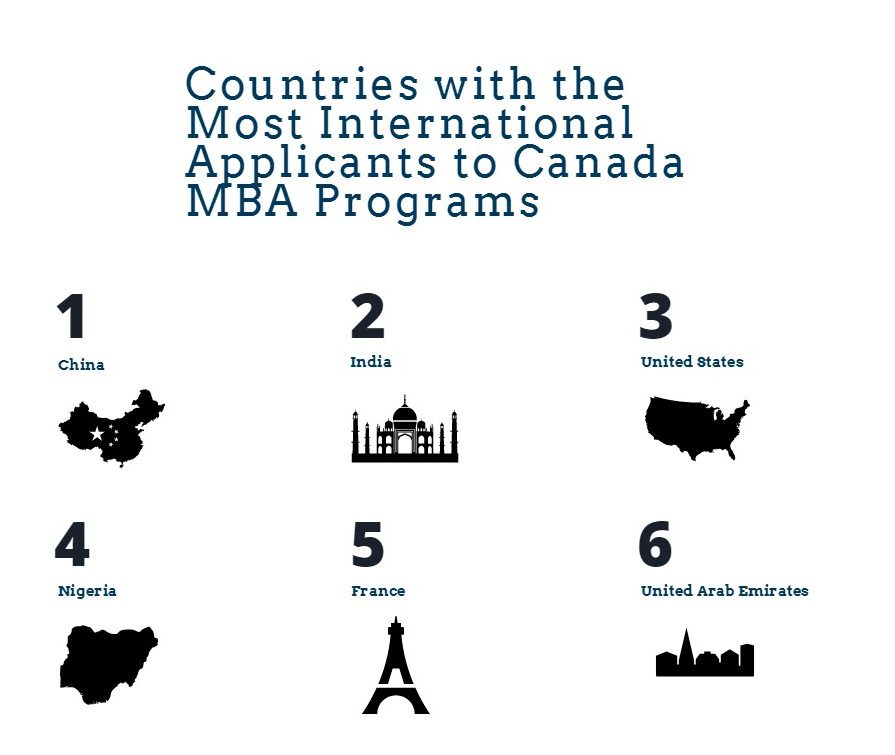Harvard Talks Managing Disorganized Employees, and More – Boston News

Let’s explore some of the most interesting stories that have emerged from Boston business schools this week.
How to Manage Someone Who Is Totally Disorganized – Harvard Business Review
Disorganized employees can be wellsprings of frustration, but there are ways to help them better understand how disorderly tendencies impact others.
Harvard Business School‘s Rebecca Knight recently discussed strategies in HBR, addressing root behavior causes and ultimately develop better systems to manage workloads.
“’Is this person’s approach creating negative outcomes, or is it just a style difference?’ If your report indicates ‘disorganized but otherwise reliable, you may have to back off.'”
Rosie Perez (not the actor), Lead Financial Officer of Global Consumer Business Planning and Analytics at American Express, adds, “It takes a lot of time to change ingrained behavior, but it can be addressed. Most importantly, as leaders, it is our job to help coach our colleagues [with] constructive and pointed feedback.”
You can read more about the research here.
Bye-Bye Ivory Tower: Innovation Needs an Ecosystem to Thrive by Tracy Mayor – MIT Sloan Ideas Made to Matter
Innovation is not exclusively indigenous to Silicon Valley. We continue to see exciting developments in London, Tel Aviv, New York, Boston, China, Nigeria, Ghana, and South Africa. However, despite the benefits of globalization, the world of innovation is not wholly flat.
New MIT Sloan research has determined that there are geographic hotspots, or “innovation ecosystems,” where ideas move more easily from inception to impact.
Phil Budden, a Senior Lecturer Specializing in Innovation and Entrepreneurship, notes how the traditional “triple helix” that has long driven innovation—university, government, and corporations—is now joined by two additional players: entrepreneurs and risk capital.
“It’s so important to have innovation-driven entrepreneurs involved. They’re producing the companies of the future. You can’t just have today’s companies [in an ecosystem], you need to have those leaders who are going to produce future companies.”
Fiona Murray, Associate Dean for Innovation, urges corporations to take advantage of startups and entrepreneurs to help experiment on their behalf.
“What these startups tend to do very well is define, order, and test their assumptions through a series of what we call ‘innovation loops. So, one of the benefits of going from a purely internal research and development process to working externally is that you can really rely on the universities and startups in an ecosystem to do that experimentation for you.”
You can read more about global innovation here and watch the recent discussion below.
Joy Field Garners Top Award from Decision Sciences Institute by William Bole – Carroll School News
BC Carroll School of Management Associate Professor of Operations Management Joy Field has received the highest honor bestowed by the Decision Sciences Institute (DSI), a global society of more than 1,800 scholars dedicated to fostering knowledge for better managerial decisions.
Field was named the 2018 co-recipient of the Dennis E. Grawoig Distinguished Service Award, named for a founder of the 50-year-old Institute. The other recipient was Morgan Swink of Texas Christian University.
DSI President Johnny Rungtusanatham of Ohio State University asserts, “This is a highly competitive distinction awarded to those who have made a continual impact on the Institute and the disciplines it serves.”
Field reflected on her two decades of involvement with the Institute. “DSI has been a major contributor to all aspects of my professional development—publishing, teaching, and service—and I am delighted to have been chosen to receive this award from among the many colleagues who have also contributed so much to DSI.”
Find out more about the recent award here.
Canada’s MBA Programs are Rising

The recent release of the GMAC 2017 Prospective Students Survey Report revealed some mixed revelations. While the status of smaller U.S. school MBA programs may be up in the air, international programs, particularly in Canada, are looking rosier than ever.
Overall, schools in Canada and Europe saw a 50 percent-plus increase in application volume from international candidates, of which GMAC speculates may be a result of political turmoil, particularly in the United States. This is a direct contrast from four years prior, in which less-than half of the Canada, UK, and other European business schools were seeing international applicant growth.
In the GMAC survey, an anonymous Canadian full-time MBA also noted, “The US presidential election has had a impact on our application numbers. Many international students choose Canada as their first choice.”
Niki da Silva, the Managing Director of the full-time MBA program at the Rotman School of Management at the University of Toronto, recently spoke with the Globe & Mail after the release of the report, saying, “This is our opportunity. We have to be anti-Canadian in this moment and really talk about what we are doing. We don’t tend to do that but we need to.”
By The Numbers
Results from the survey found subtle yet distinct differences between the international applicant pools in the major MBA location destinations.

In the United States, Europe, and Canada, according to GMAC, the two most prolific countries with international applicants were unilaterally India and China, which came in either first or second place for each region. However, for Canada, the remaining top 10 international countries with high applicant pools differed slightly from the U.S. and Europe, especially regarding Middle Eastern and North African countries. The United Arab Emirates (6th most), Tunisia (9th), and Iran (10th) were no where to be found in either the U.S. or European top ten.
Breaking the applicant pools down further, GMAC found an unsurprising correlation between the distribution of citizenship by application for Canada and the U.S. and the new data trends. After Europe, which had the most diverse applicant pool (a tricky stat since Europe is qualifying every country on the continent, while the U.S. and Canada are counted as singular entities), Canada had the world’s second biggest international pool of applicants, with less than 50 percent of Canadian business school students having official Canadian citizenship.
Domestic applications, in contrast, are actually down. But the international pool in Canada is swelling, creating substantial overall growth.
“International applicants comprised the vast majority of applications to business programs in Canada—64 percent of MBA applications and 88 percent of business master’s applications.” – GMAC
Gregg Schoenfeld, GMAC’s Director of Research, also noted upward trend for Canadian schools, saying, “This is the first time in the past five years that the majority, in fact three-quarters [of Canadian schools in the survey], are saying they are growing international volumes.”
“From a speculative point of view, it seems that the U.S. political climate has essentially driven candidates to Canada,” he continued.
YOU MIGHT ALSO LIKE: The Highest Starting Salaries for Toronto MBA Grads
The move to enroll more international applicants in Canadian schools started to emerge several years ago. Following lower periods of domestic enrollment, Canada’s MBA programs made a concerted effort to bring in more talent from abroad, creating a multi-year spring in growth that has not only benefited school enrollment, but fostered a positive international environment.
According to Global Affairs Canada, the result has been a positive economic boon as well. Upwards of 90,000 new jobs were created for Canadians just two years prior, while adding $10 billion to the country’s economy.
Tim Daus, Executive Director of the Canadian Federation of Business School Deans, previously noted that the trend was partly made possible because of the country’s flexible immigration policies, saying, “Canada’s visa requirements are much more flexible than other countries’, which gives us an edge. That makes a big difference for students who want to stay and work afterwards.”
Canadian Accolades
The substantial growth Canadian business schools have seen may not solely be the result of political overtones, rather, that many of the country’s best institutions only continue to improve.
The Schulich School of Business at York University in Toronto earned some hefty recognition from Forbes‘ recently released “Best Business Schools” global rankings, earning the 8th spot among the best international two-year program in the world. Schulich grads, Forbes claims, can expect a five-year net gain of over $48,000.
Last year’s Bloomberg BusinessWeek ranking of the best non-U.S. business schools also recognized both the Ivey Business School at Western Canada University and the Rotman School of Management among the top 25 programs in the world. Both the aforementioned Ivey and Rotman programs were recognized among the world’s 100 best by the Financial Times this year as well.
UCLA Wins Deloitte Consulting Award For Nigerian Export Field Research

While most business school programs require a master’s thesis, the UCLA Anderson School of Management takes a different approach. Students at Anderson do a field study as New Company Founders or Applied Management Research (AMR).
Friday News & Notes: The Trump Effect, Career Bumps And Early Careers

Good morning and happy Friday!
Here are a few stories you may have missed from the week that was …
Stanford Seed Transformation Aims to Accelerate New Economies

Stanford’s Graduate School of Business recently published an article on the impact of its Stanford Seed initiative, which aims to make Stanford “the leading research university for thinking about the challenges of poverty in the developing world” by addressing the physical and infrastructural issues that hamper economic development, as well as “cultural practices and entrenched psychological conditioning.”
Continue reading…
McDonough Teams Up With African Foundation To Promote Economic Growth

The Niger Delta Partnership Initiative (NDPI) Foundation and the Global Social Enterprise Initiative (GSEI) at the McDonough School of Business announced a partnership to support the reduction of conflict and promote equitable economic growth in the Niger Delta region of Nigeria.
According to this Press Release on the McDonough Website, the two initiatice will work together to a) increase awareness of how conflict mitigation can lead to economic opportunity in the Niger Delta region; b) build the capacity of NDPI’s board, staff, and key stakeholders in best practices for organizational effectiveness and stakeholder engagement; and c) examine, showcase, and share best practices in corporate responsibility. Continue reading…
